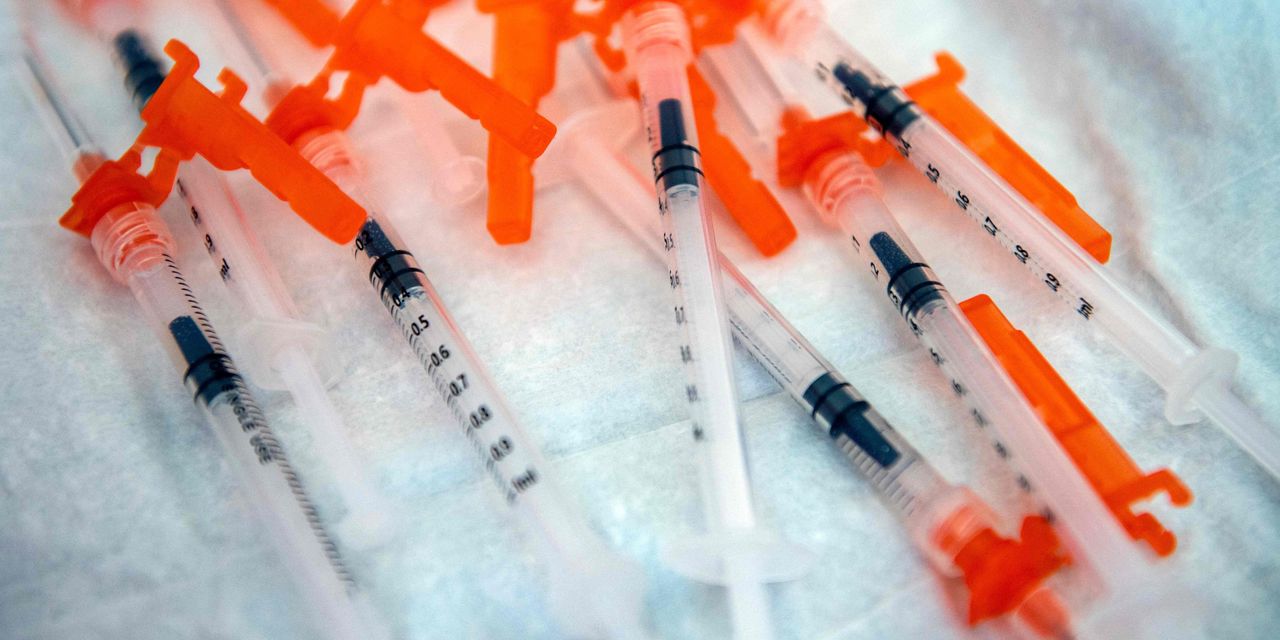U.S. COVID cases are rising again after being steady for several months, as the BA.5 omicron subvariant becomes dominant.
BA.5 is understood to be the most transmissible variant seen so far and to have an ability to break through vaccination and cause reinfection.
The daily average for new U.S. cases stood at 129,938 on Sunday, according to a New York Times tracker, up 15% from two weeks ago. The number is likely undercounted as so many people are now testing at home and the data are not being collected.
The daily average for hospitalizations rose to 40,942, up 20% in two weeks. The daily average for deaths is up 9% to 420.
See now: Are you confused about BA.5 and the current state of the pandemic? Here’s how the experts are thinking about it.
Parents of very small children in Florida are finding it difficult to access the COVID vaccines that were recently authorized for babies aged six months up to five years, the Washington Post reported.
And they are blaming Florida Gov. Ron DeSantis, who warned parents not to get the “baby jabs” as regulators had done insufficient testing and trials. DeSantis, a Republican, said he would not stand in their way, however.
But now parents are struggling to find places that carry the vaccines and are blaming the governor for failing to pre-order shots and prohibiting county health departments from administering or distributing them. DeSantis was the only state governor to take that action.
As always, poor families are being hit the hardest, as they rely on county health clinics that are now barred from administering the vaccine to very young children.
Coronavirus Update: MarketWatch’s daily roundup has been curating and reporting all the latest developments every weekday since the coronavirus pandemic began
Other COVID-19 news you should know about:
• Macau’s government will extend a lockdown of casinos and other businesses until Friday, as authorities grapple to stop the spread of COVID-19 in the world’s biggest gambling hub, according a statement on its website, Reuters reported. The lockdown was meant to end on Monday.
• The U.K. will offer second boosters to anyone aged 50 and over starting in the fall, according to the Joint Committee on Vaccination and Immunization. In a statement on its website, the JCVI said other eligible for a second dose include anyone aged 5 to 49 in a clinical risk group; those aged 5 to 49 who are household contacts of people with immuno-supression; those aged 16 to 49 who are carers; residents and staff in old age homes; and frontline health and social care workers.
• Older Americans were just starting to get back to work after COVID-19 either pushed them into an early retirement or left many unemployed, but the new COVID variant might alter those plans, MarketWatch’s Alessandra Malito reports. The virus might deter some older Americans from returning to the workforce or staying in the labor market, depending on their jobs, financial status and fear of contracting COVID, experts said. Over the last 25 years, workers 55 and older accounted for 80% of the growth in the labor force, said Richard Johnson, director of the program for retirement policy at Urban Institute. “Employers are increasingly relying on older workers to fill their staffing needs,” he said. For some older workers, staying in the labor market is the better alternative to retiring with nothing to do, but for others, it’s necessary, especially if they haven’t saved enough for retirement and Social Security benefit checks won’t cut it.
Here’s what the numbers say
The global tally of confirmed cases of COVID-19 topped 562.5 million on Friday, while the death toll rose above 6.36 million, according to data aggregated by Johns Hopkins University.
The U.S. leads the world with 89.5 million cases and 1,023,810 fatalities.
The Centers for Disease Control and Prevention’s tracker shows that 222.6 million people living in the U.S. are fully vaccinated, equal to 67.1% of the total population. But just 107 million have had a first booster, equal to 48.1% of the vaccinated population.
Just 18.2 million of the people 50 years old and over who are eligible for a second booster have had one, equal to 28.5% of those who had a first booster.
